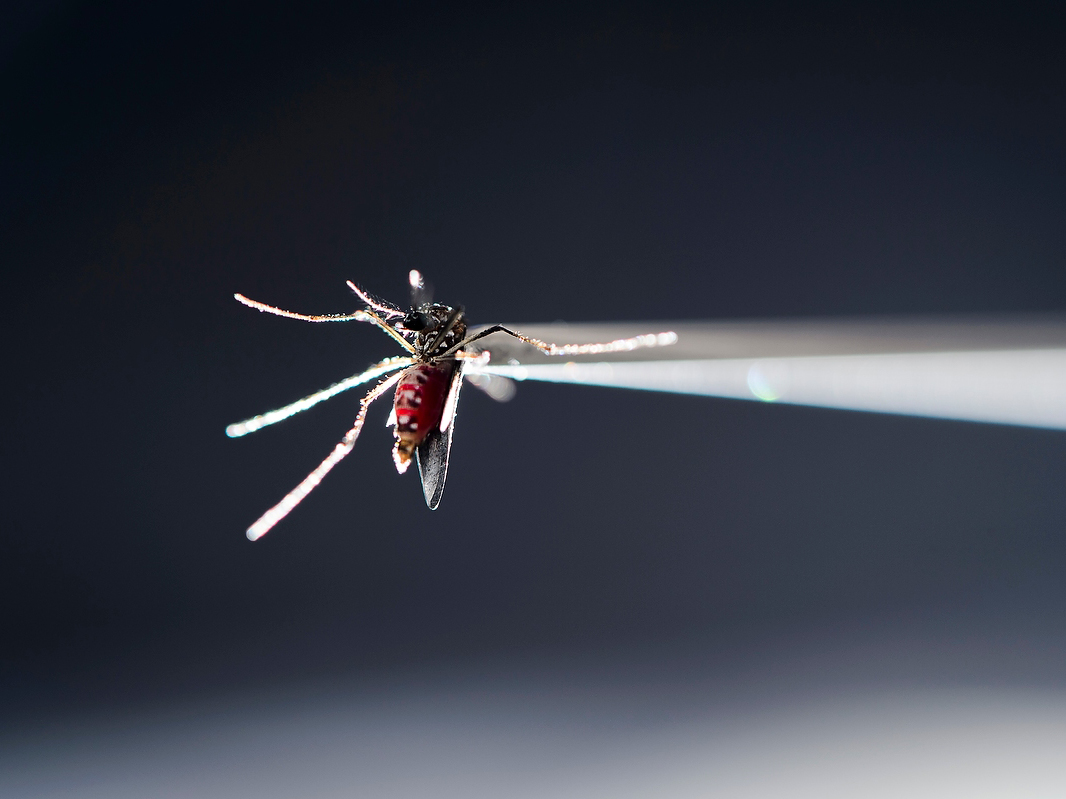

As the Zika virus continues to infect people in many parts of Brazil and South America, health officials remain concerned about rising rates of Zika-related birth defects like microcephaly. Babies are still being born with microcephaly (a condition that includes abnormally small skull size and associated brain defects), and the babies born when the outbreak first began are now turning one.
Many factors–like how long the virus lasts, who is protected, and how those children born with microcephaly will fare in the future–are still unknown. But a study out this week in the journal Nature Communications which looked at the virus’ effects in rhesus macaques, has answered a few of those questions, and could help scientists in the quest to design a Zika vaccine. None currently exists for the virus.
The study, which is the first one to look at Zika in primates in a lab, found that a previous Zika infection protects a person against future infections, and if a woman is pregnant, the virus will stay in her system longer.
For the study, which started last October, the researchers, from the University of Wisconsin, Madison and Duke University, infected the monkeys with the same strain of Zika virus that is currently circulating through South America. The researchers then impregnated some, but not all the monkeys. In the nonpregnant monkeys, the virus stayed in their bodies for no more than 10 days. When the researchers re-infected those monkeys with the same Zika strain 10 weeks later, the monkeys remained immune to the virus, showing no signs of the virus circulating in their blood.
“This is good news for the vaccine design. It suggests the sort of immunity that occurs naturally is sufficient. If you can mimic that in a vaccine, you’ll likely have a very successful vaccine,” said study author David O’Conner, a pathologist at the University of Wisconsin, Madison, in a press release put out by the university.
But things were a little different for pregnant monkeys. The researchers found that the virus stayed in their blood for much longer than their nonpregnant counterparts, remaining there for anywhere between 30 and 70 days. The researchers aren’t completely sure why this is happening.
One idea is that the immune systems of pregnant monkeys are compromised, allowing the infection to persist for longer. Another idea is that the infected fetus is shedding the virus and circulating it back into the mother’s bloodstream. If the latter hypothesis is true, the length of time the virus is present in the mother could provide scientists with a mechanism to measure the level of risks or damage to the fetus.
All of this information gives scientists a better understanding of how and why Zika is affecting humans. Rhesus macaques are an ideal primate to study as their pregnancies are more similar to humans than any other primate, the researchers said yesterday during a press conference.
Studying how humans become immune could help scientists create an effective vaccine, and knowing how the amount of virus in a pregnant woman’s bloodstream relates to fetal development could help scientists create treatments to potentially prevent the neurological damage from occurring in the first place.
According to the researchers, this study also shows what many public health officials have been preaching: That most people don’t need to worry about Zika. But if you are pregnant or at risk of becoming pregnant, then the implications of a Zika infection remain significant. The immunity aspect may help to explain why microcephaly is so high in Brazil, but not in Africa, where the virus has been circulating for years. As study author Matthew Aliota suggests in the press release, people in Africa may be exposed to the virus early in life, and would thus develop an immunity by the time they were ready to become pregnant.
While the results of the study are being published today, the researchers have actually been publishing their results in real time online, as a way to help Zika research move efficiently and quickly. Other scientists have used their study design for their own research, the authors said, and see this as a way to keep science research moving efficiently to benefit the people affected by Zika as quickly as possible.
